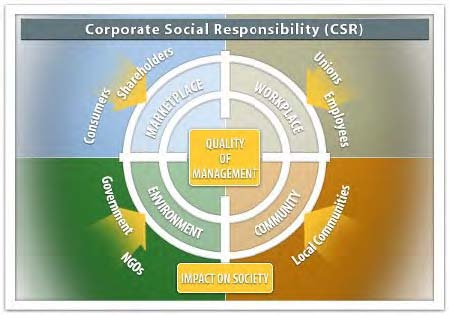The topics surrounding Corporate Social Responsibility (CSR) have become more complex due to the globalization of the economy and the issues that arise from companies competing in international markets. Companies are manufacturing goods, hiring local labor, utilizing raw materials and resources extracted from the environment in international locations.
This heightened awareness of CSR and sustainable development has been endorsed by an increased responsiveness to ethical, social, environmental and other global issues. In recent years, companies have been the center of scandals regarding accounting practices, damages to the environment, inadequate treatment of employees and workers and the effect of its products on the society.
For example, in January 2009, the Chairman of one of India’s largest technology companies, Satyam Computer Services Ltd., said he fabricated key financial results, including a fictitious cash balance of more than USD 1 billion (Sheth, 2009). Cases like this, and others such as Enron Corporation and Worldcom in the United States, prompt concerns about corporate governance and accounting standards globally. Further, corporate fraud puts into question one of the fundamental reasons of why shareholders invest in public companies, the need for transparency.
As a result, companies are responding to increased public expectations of responsibility and incorporating the concept of CSR into their operating plans and strategy.

- 10446 reads






